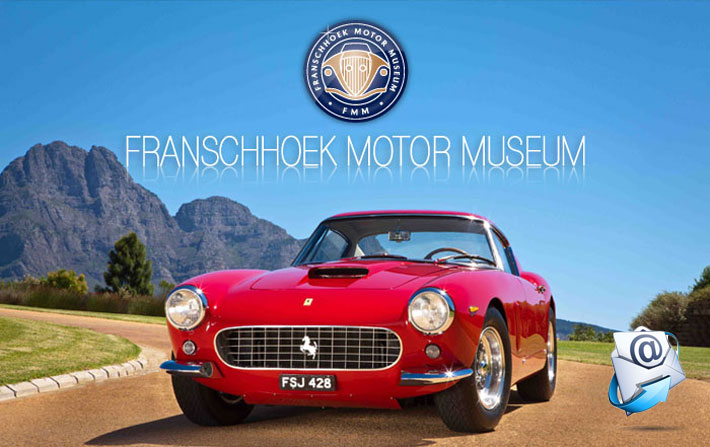CELEBRATING THE SONDERKLASSE
|
|
|

|
|
DKW was one of four German car companies (Audi, Wanderer and Horch being the other three) that came together in 1932 to form the Auto Union, based in Zwickau, Saxony. DKW (Dampf Kraft Wagen – Steam-driven Car) had its origins in 1916 as a company that manufactured steam equipment and later branched out into motor cycles – becoming the world’s largest manufacturer by the 1930s. Almost inevitably, DKW started building vehicles – front-wheel drive cars with two-stroke engines.
After World War Two, Saxony became part of the Soviet Occupation Zone and Auto Union’s facilities were nationalised by the Russians and used to produce cars under the name Industrieverband Fahrzeugbau (IFA) – the Industrial Association for Vehicle Construction. According to German motoring historians, DKW’s directors spirited the working drawings for the post-war DKW out of the factory when they fled to Düsseldorf in the west, while the East Germans built their cars from the pre-war tooling that was in place when they took over the plant.
Again beginning with motor cycles, by 1950 DKW once more began building cars, powered by the familiar two-stroke engine. The Sonderklasse (also known as the F91 or 3=6) débuted at the Frankfurt Motor Show in March 1953 and was presented as a two-door saloon with front-opening doors to provide easy access. A ‘pillarless’ coupé version was produced from 1954, as well as a cabriolet with a body by coachbuilders Karmann. In addition, there was a three-door estate called the Universal. The Sonderklasse remained on sale until 1959.
To celebrate the 60th anniversary of the Sonderklasse, FMM is currently displaying its 1954 convertible. It is powered by a water-cooled, two-stroke, three-cylinder 896 cm3 engine producing 25.4 kW at 4 000 r/min and is coupled with a column-shift four-speed gearbox. WH
|
|
|

|


On 30 April FMM played host to a Ferrari Drive Experience involving the latest California and FF models. Invited guests arrived in the morning and were treated to a driver briefing and refreshments before leaving the museum’s grounds for a drive through Franschhoek then over the Pass and heading out on the scenic route to Villiersdorp for further refreshments and a change of cars. After returning to FMM, a guided tour of the museum’s four exhibition halls was given before an antipasti lunch was taken in FMM’s board room. A gift wine-pack rounded-off the proceedings. WH
|
|
It’s not often that a museum sells its assets, but this June, the Sylviavale Heritage Museum based in Vanderbiljpark is planning an exciting auction of vintage, classic and collectable vehicles as well as automotive memorabilia set to take place on 29 June 2013 at the Museum’s premises. According to museum curator Siggi Düvel, “We have a number of significant projects that we know the museum do not have the ability to restore, and in keeping with our desire to have exciting vintage vehicles on the road rather than sitting in storage, we want to give the public the opportunity to take on these projects and at the same time raise funds to continue to grow the
Museum”.
The eclectic mix of vehicles includes a 1923 Ford Model T Tourer, 1930 Chevrolet Sports Roadster, 1937 International panel van, 1948 International KB12 Woody, 1949 GMC truck, 1957 Hillman Minx convertible, 1957 Commer pick-up, 1958 Wolseley 1500, 1970 International 1300 pick-up, 1989 Ford Bronco Eddie Bauer edition and a 1991 Mercedes-Benz 560 SEC. Many more vehicles, including numerous tractors, are ripe for restoration or for use as donor vehicles. Other unique lots on auction will include a restored ox wagon, old plant and workshop machinery,
antique implements, tools and signage.
For further details contact Siggi on 082 492 5214 or 016 932 2495
or email sylviavale@heritagemuseum.co.za. |
|
WHERE, WHAT TIMES
AND HOW MUCH
The Franschhoek Motor Museum is situated on the L’Ormarins Estate along the R45 in the Franschhoek Valley in the Western Cape. The opening hours are:
Monday to Friday 10h00 to 17h00 (last admittance 16h00),
Saturday and Sunday 10h00 to 16h00 (last admittance 15h00),
and the museum is open on most public holidays.
Admission prices are R60 adults, R50 pensioners, R30 children. An on-site delicatessen offers refreshments and tasting of L’Ormarins estate wines is also available. MM
|
|
|
|

